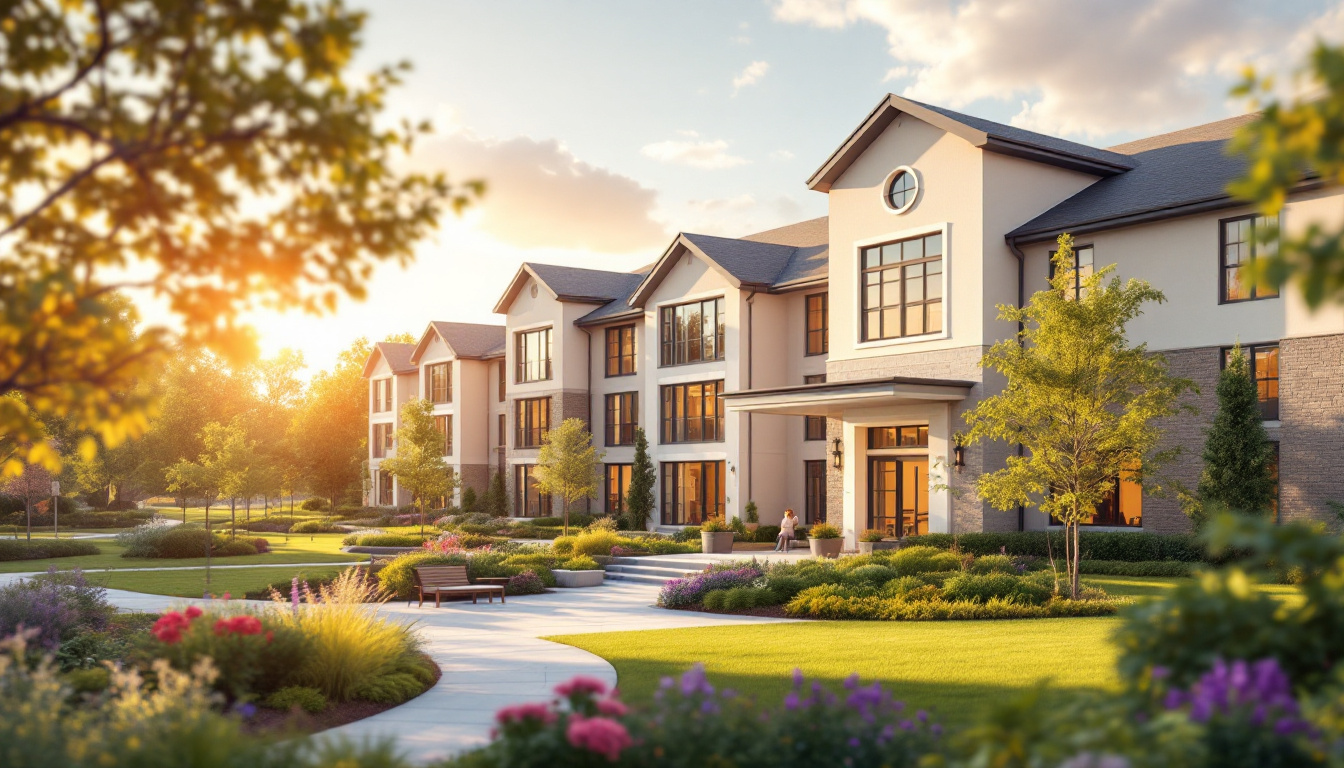How to Find Senior Care That Offers Specialized Memory Care
Navigating the Path to Quality Memory Care for Seniors

Understanding the Landscape of Memory Care Options
Finding the right senior care with specialized memory services involves understanding the various care types available, recognizing the signs indicating a need for such care, and knowing how to evaluate and select the best facility or support system. This comprehensive guide aims to equip families and caregivers with essential knowledge to make informed decisions tailored to their loved ones' needs.
Recognizing the Signs of Memory Issues and When to Seek Help

What are the signs of memory issues, and when should I consider seeking specialized care?
Memory problems in seniors can manifest in many ways, and recognizing them early is crucial for effective intervention. Persistent forgetfulness impacting daily activities is often one of the first signs. For instance, a person may repeatedly ask the same questions, misplace household items, or forget important dates, appointments, or responsibilities.
Behavioral and personality changes are also common indicators. These may include increased anxiety, withdrawal from social activities, or unexplained mood swings. Difficulty with routine tasks, such as managing finances, cooking, or following directions, can further signal cognitive decline.
Language difficulties, like trouble finding the right words or completing sentences, are characteristic of progressing memory issues. Safety concerns also arise when individuals become disoriented in familiar environments or if their decision-making abilities decline.
When these signs begin to interfere with independence or pose safety risks, it’s essential to seek professional assessment. Sudden or rapid onset of memory loss, confusion, or noticeable behavioral shifts require immediate medical attention. Early evaluation can help determine whether the cause is reversible, like medication side effects, or if it indicates a more serious condition like dementia.
Proactive care planning involves consulting healthcare providers trained in memory disorders. Early diagnosis allows for better management, support, and safety measures. If you notice your loved one experiencing increased forgetfulness, disorientation, or personality changes—especially if these are sudden or worsening—seeking specialized memory care can improve their quality of life and provide peace of mind for families.
Evaluating Memory Care Facilities: Key Factors and Questions

What should I consider when choosing a memory care facility for a senior with dementia or Alzheimer's?
Selecting the right memory care community for a loved one involves careful evaluation of multiple important factors. First, assess the staff’s expertise and training specifically in dementia care. Caregivers should be well-versed in managing behavioral challenges, understanding medical needs, and providing compassionate, person-centered support.
Security and safety are vital. Look for features like secured entrances or monitored exits, alarm systems, and enclosed outdoor spaces. These elements help prevent wandering, which is a common concern in dementia care.
Another essential consideration is the quality of activities and engagement programs. Facilities that offer cognitively stimulating, social, and recreational activities tailored to residents’ abilities help enhance quality of life and promote cognitive health.
The environment’s comfort and dignity are equally important. The setting should feel homelike, with clean, well-maintained spaces that respect residents’ dignity. Good lighting, easy navigation, and outdoor access contribute positively.
Licensing and accreditation are markers of quality and compliance with safety standards. Ask about staff-to-resident ratios and ensure they meet recommended guidelines. Visiting at different times of day provides insight into staff interaction, cleanliness, and overall atmosphere.
Review the facility’s transparency regarding costs and care plans. Understanding pricing structures, what services are included, and policies on family involvement ensures clarity and helps in making an informed decision.
Finally, do not hesitate to consult healthcare professionals or resources like the Alzheimer’s Association or Aging Life Care professionals. They can provide guidance specific to your loved one’s needs.
By thoroughly evaluating these aspects, families can choose a memory care community that provides safety, dignity, and enriching experiences for their loved ones while offering peace of mind to caregivers.
Identifying and Assessing Suitable Memory Care Options

How can I identify and evaluate suitable memory care options for my loved one?
Choosing the right memory care community involves thorough research and careful observation. Start your process by looking into the reputation of potential facilities. Reading reviews from residents and family members can provide insights into the quality of care, safety, and environment. Recommendations from healthcare providers or local senior agencies like the Eldercare Locator or the Alzheimer’s Association are also valuable.
Visiting multiple memory care communities in person is crucial. During visits, assess safety features such as secure exits, alarm systems, and fenced outdoor spaces. Observe cleanliness, environment, and how staff interact with residents. Ask detailed questions about staff training in dementia care, staff-to-resident ratios, and the types of activities provided. Ensure staff are trained specifically for dementia-related issues and that services are personalized to meet individual needs.
It's important to verify that the facility is licensed and certified by relevant authorities. Facilities with The Joint Commission Memory Care Certification are recognized for meeting high safety and quality standards.
Cost considerations are vital; inquire about current rates, what amenities are included, and the facility's policies on waiting lists or admissions. As dementia progresses, residents' needs increasingly require adaptable environments; ensure the community can accommodate changing health conditions.
Finally, trust your instincts and involve your loved one in the decision. Use additional resources like local advocacy groups or geriatric care managers for support. Staying engaged and informed helps ensure you find a safe, supportive, and suitable environment that promotes dignity and quality of life.
Additional Tools and Resources
| Resource Name | Purpose | How It Helps |
|---|---|---|
| Eldercare Locator | Find local senior services | Connects you with community resources |
| Alzheimer’s Association | Support and caregiver resources | Offers guidance on choosing suitable memory care |
| The Joint Commission | Accreditation information | Ensures high safety and quality standards |
| Medicare Care Compare | Comparing care providers | Assists in evaluating facility quality |
Features and Programs to Prioritize in Memory Care Communities

What features and programs should I look for in a memory care facility?
When selecting a memory care community, it’s essential to focus on safety, engagement, and personalized care. Facilities should have security measures such as alarmed doors, monitored exits, and surveillance cameras to prevent wandering, which is a significant safety concern for residents with dementia.
Staff training is another critical aspect. Look for communities where caregivers are specially trained in dementia care, including managing behavioral challenges and providing person-centered support. Low staff-to-resident ratios are preferable, ensuring residents receive timely and attentive care.
Engagement programs are vital for maintaining cognitive function. Effective facilities offer a variety of activities like music therapy, art classes, memory games, and outdoor gardening. These programs are tailored to different stages of dementia, helping residents stay socially active and mentally stimulated.
Amenities such as private or semi-private rooms, therapeutic recreational spaces, and secure outdoor gardens contribute to residents’ comfort and autonomy. Safe outdoor areas allow residents to enjoy nature without risking wandering or falls.
Availability of medical and emergency services is crucial. Reliable access to healthcare providers, on-site nurses, and emergency response systems support the health and safety of residents.
Family involvement policies and transparency about care plans are also important. Communities should actively encourage family participation in care decisions and provide regular updates, fostering trust and collaboration.
In summary, prioritizing safety features, engaging activities, qualified staff, accessible healthcare, and family involvement will help identify a memory care community that best supports your loved one's wellbeing.
Understanding Support Systems and Levels of Memory Care
What are the different types of memory care support systems and levels of care available?
Memory care support systems cover a wide array of environments and services designed specifically for individuals experiencing memory loss due to conditions like dementia and Alzheimer’s disease. These include specialized residential settings, assisted living communities with dedicated memory treatment areas, and skilled nursing units tailored for advanced care needs.
Residential environments such as dedicated memory care communities are purpose-built with safety features like secured exits and alarm systems to prevent wandering. These facilities also provide structured routines and therapies aimed at maintaining cognitive skills and providing social engagement.
Assisted living facilities often include neighborhoods or wings designed to support residents with early to mid-stage dementia. These settings offer assistance with daily activities, along with memory-enhanced programs, all while promoting independence.
For residents with more severe or complex needs, skilled nursing units equipped for advanced dementia care provide around-the-clock medical attention, including frequent safety checks, mobility assistance, and precision in medication management.
Support services also extend beyond physical facilities. In-home care services enable individuals to receive personalized support within their familiar surroundings, including help with daily tasks and companionship. Adult day centers provide daytime supervision and social activities, offering respite for families and maintaining social routines for participants.
Support levels can range from minimal prompting and behavioral management to intensive supervision necessary for individuals in the late stages of dementia. These adaptable care options ensure that each person’s evolving needs are met, preserving safety and quality of life.
Overall, the spectrum of memory care systems is designed to adapt to each individual, encouraging independence when possible, and providing high-level support where necessary, always aimed at enhancing residents’ comfort and dignity.
In-Home Memory Care Services: Flexibility and Personalization
Are there in-home memory care services available, and how do they differ from facility-based care?
Yes, there are in-home memory care services designed to support seniors with dementia or Alzheimer’s disease within the comfort of their own homes. These services are highly flexible and personalized, ranging from just a few hours of assistance per week to around-the-clock supervision.
In-home memory care includes a variety of support options such as companionship, personal care, help with activities of daily living (like bathing, dressing, and medication management), and even specialized skilled nursing care when needed. This setup allows seniors to stay in familiar surroundings, which can greatly enhance emotional well-being and reduce stress.
Facility-based memory care, on the other hand, involves moving into a specialized community or residential facility. These environments are designed with safety features such as secure doors and wandering prevention systems. They also typically offer high staff-to-resident ratios and access to on-site medical and therapeutic services.
While in-home care offers the advantage of comfort, flexibility, and maintaining independence, facility-based options are often more suitable for individuals with advanced memory loss who require continuous supervision and immediate medical support.
Deciding between in-home and facility-based care often depends on safety concerns, the stage of the condition, and personal preferences. Healthcare professionals can help identify the most appropriate choice tailored to each individual’s needs and circumstances.
What Questions to Ask When Researching or Visiting Memory Care Providers

What should I ask when researching memory care providers or visiting facilities?
When exploring options for memory care, it's essential to gather detailed information to ensure the best environment for your loved one. Start by asking about staff qualifications and training, specifically in dementia care. Find out if staff members are trained in the latest dementia-specific practices and how often they receive ongoing education.
Safety is paramount in memory care settings. Inquire about security protocols like secured entrances, exit alarms, and wandering management systems. Ask about the facility’s emergency procedures and whether there are trained medical professionals available on-site 24/7, including registered nurses or physicians.
Activities and therapies play a significant role in residents' quality of life. Check what kind of programming is offered—are activities tailored to residents' cognitive levels? Are services like art, music, or physical therapy available to promote engagement and socialization?
Healthcare support inside the facility also matters. Ask if there are on-site medical services, medication management programs, and regular care plan reviews. Knowing that medical needs are promptly and professionally addressed can make a big difference.
Financial transparency and visitation policies are also crucial. Clarify costs upfront, including what services are included and what may incur extra charges. Understand visitation hours and policies to maintain family involvement. Lastly, ask how the facility communicates with families about residents’ health, progress, and daily experiences.
By asking targeted questions about staff expertise, safety measures, activities, medical support, and care transparency, you can choose a memory care community that offers a safe, engaging, and supportive environment for your loved one.
Making an Informed Decision for Your Loved One’s Memory Care
Choosing the right memory care option for a senior loved one is a critical decision that requires thorough evaluation of facilities, understanding the range of support systems available, and ensuring personalized and safety-focused care. By recognizing the signs of memory issues early, assessing facility features and staff qualifications, and leveraging available resources—both in-home and facility-based—you can find tailored solutions that uphold dignity, safety, and quality of life for your loved one. Consultation with healthcare providers and visiting potential communities can further solidify your choice, ensuring a nurturing environment that adapts to your loved one’s evolving needs. Empowered with knowledge and support, families can navigate the journey of memory care confidently, securing the best possible outcome for those facing cognitive challenges.
References
- Finding Dementia Care and Local Services - Alzheimers.gov
- 8 Best Memory Care Facilities in Valparaiso, IN - A Place for Mom
- Memory Care Valparaiso IN - Brookdale Senior Living
- Alzheimer's Caregiving: Finding Long-Term Care
- AVIVA Valparaiso: Assisted Living & Memory Care Excellence in ...
- Alzheimer's & Dementia Care Options
- What to Look for in a Memory Care Facility in Crown Point, Indiana
- In-Home Care | Alzheimer's Association
- Best Assisted Living Facilities in Valparaiso, IN - SeniorLiving.org
- In-Home Dementia Care Services | Homewatch CareGivers






































































































